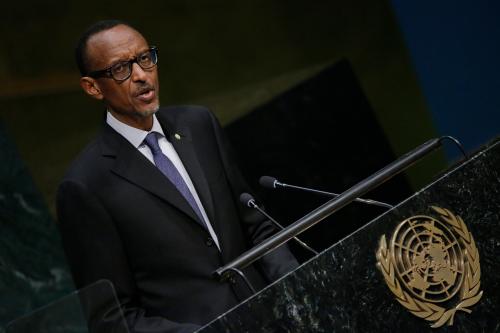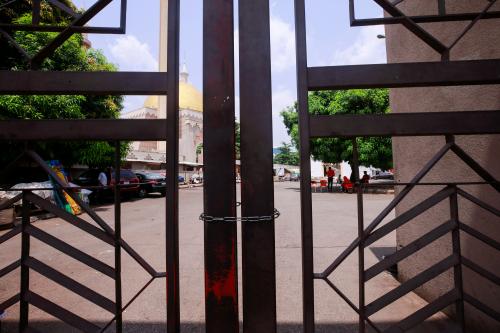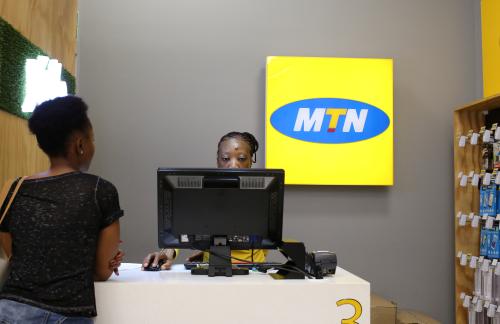44 African nations signed CFTA but Nigeria sits out
On Wednesday, March 21, 44 African countries signed the continental free trade agreement (CFTA) in Kigali, Rwanda, at the 10th extraordinary session of the African Union summit, completing the negotiations on the continent-wide free trade agreement that had begun in 2015. The CFTA will be implemented once 22 countries ratify the pact in their national parliaments. Currently only 16 percent of African trade is intra-regional and according to estimates by the United Nations Economic Commission for Africa, this should rise to half by 2022. Speaking at the event, President Paul Kagame of Rwanda said, “Today’s milestone is an indication of how much is possible when we work together.”
However, one of Africa’s largest economies, Nigeria, has not signed onto the pact yet. Explaining President Buhari’s decision to stay out of the pact, Presidential Spokesman Femi Adesina said, “Anything that could encourage the dumping of finished goods in Nigeria was going to be contrary to our interest. So, it is one of the reasons while he declined.” President Buhari has set up a committee to study the agreement, consult relevant stakeholders, and report to the federal executive council in two weeks.
For more on the CFTA please read Eyerusalem Siba and Mariama Sow’s recent piece on the role of the CFTA for strengthening value chains, Landry Signe’s recent piece on the CFTA and industrialization, and Vera Songwe’s foresight Africa viewpoint on the CFTA.
Mozambique and foreign creditors engage in debt restructuring talks
Talks between Mozambican officials and international creditors regarding the restructuring of approximately $2 billion of debt began in London this week. The discussion follows the release earlier this month of a debt sustainability report by International Monetary Fund, which found that Mozambique’s economy is in a weak state, and the country would be unlikely to pay back investors until it begins producing liquefied natural gas in 2023. In January 2017, Mozambique defaulted on the first coupon payment of its $727 million eurobond due 2023. The default triggered a drop in the bond to 55 cents on the dollar, however, since then, the bonds have risen to about 85 cents on the dollar, as investors expect that, when Mozambique ultimately begins producing liquefied natural gas, the government will repay its debts.
On Tuesday, Mozambique Finance Minister Adriano Maleiane presented a restructuring proposal to creditors. He offered creditors three options to exchange existing debt into new debt due in eight, 12, or 16 years. Those choosing the longest maturity would be fully repaid, while those selecting the eight- or 12-year bond world receive less interest and would accept debt reductions of 10 percent and 20 percent, respectively. Mozambique also request a 50 percent write-down on the $249 million in past-due interest it owes investors. The Global Group of Mozambique Bondholders, a group representing 80 percent of investors holding Mozambique’s main eurobond, have called the proposal “a non-starter.” Immediately following the talks, Mozambique’s bonds fell by 6.1 percent to 78.1 cents on the dollar.
Boko Haram returns kidnapped schoolgirls in Northern Nigeria
On Wednesday morning, Boko Haram returned dozens of girls who were kidnapped from the northern Nigeria community of Dapchi last month. Parents were delighted to see their daughters’ return. However, the elation, which came with the news of the release, vanished as reports emerged that one girl is still being held and five died in captivity. Reports claim that Boko Haram refuses the release of the remaining girl under the pretext that she refuses to convert to Islam; one of the released girls quoted Boko Haram members stating that the girls were released because of their Muslim faith. Moreover, the release came with one warning from the insurgent group: no more school. During the drop off, a Boko Haram militant allegedly stated, “Don’t take your girls to that school again if you don’t want us to kidnap them again.”
While there were reports that ransom was paid to the group, information minister Lai Mohammad denied this claim and stated that the group’s sole condition for the release was that the girls are to be released in Dapchi, without the military presence. President Buhari added that his government focused on a non-violent approach toward the release and secured it “through back-channel efforts and with the help of some friends of the country.” Friday, the girls and their parents met with president Buhari in Abuja.







Commentary
Africa in the news: African countries sign CFTA, Mozambique conducts debt talks, Boko Haram returns kidnapped girls
March 23, 2018